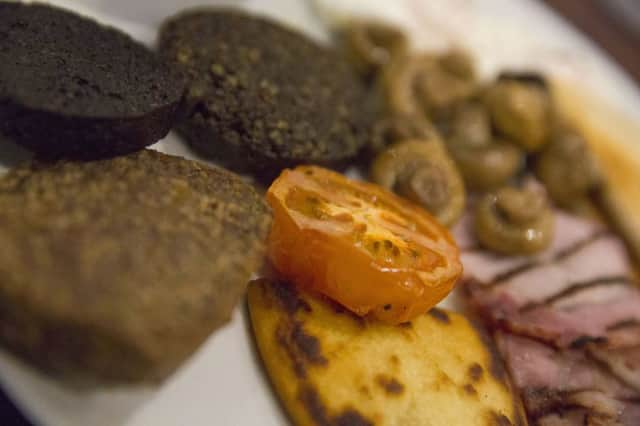Stephen Jardine: Just buy better quality meat


Could the great Scottish cooked breakfast be on the way out ?
That’s the inevitable conclusion following this week’s report from the International Agency for Research on Cancer. It classified processed meat as a “definite” cause of cancer and red meat is a “probable” cause.
Advertisement
Hide AdAdvertisement
Hide AdFor lovers of sausage, bacon and eggs that looks like very bad news indeed.
The processed meat findings are nothing new and scientists have been warning for some time that smoked meats, sausages and bacon all come with a risk.
But turning the spotlight on to all red meat is a major development and a real worry for farmers and food processors.
But before we all rush out to buy mung beans and vegan cook books, it’s important to understand the extent of the risk.
Of the 940 potential cancer causing agents reviewed by the International Agency for Research on Cancer, only one was given a totally clean bill of health.
In terms of cancer risk, processed meat such as sausage and bacon is classified at the highest level in Group 1. But it sits alongside a long list of carcinogens that are hard to avoid such as sun and exhaust fumes.
Even alcohol is in Group 1 due to the link with oesophageal and breast cancer.
Cutting processed meat from your diet also won’t erase any risk of colorectal cancer. According to Cancer Research UK, on average 61 people out of 1,000 develop the disease across their lifetimes. Among those eating red and processed meat, the incidence rises to 66 people out of every development. It is an increase in risk but still a small one.
Advertisement
Hide AdAdvertisement
Hide AdPlacing red meat in risk factor 2A sounds like a serious worry until you realise it sits alongside doing shift work and just ahead of drinking coffee and applying aloe vera to your skin in terms of additional cancer risk.
Apologies if this is a bit technical, but it is important to get the facts to match the headlines. Food scares make good copy. Trying to interest readers in European monetary policy is an uphill struggle but we all have to eat at least three times a day and that ensures any suggestion that eating some things are bad for you will reach a big audience.
So it’s important the information is accurate but it also needs to be seen in perspective and against the backdrop of how we live our lives rather than experiments carried out in a laboratory.
We all know eating too much red meat isn’t good for us. I went to three barbecues in two days this summer and the burger, sausage and steak overload left me feeling sluggish and overloaded.
Our bodies are very good at telling us when enough becomes too much. At the other end of the scale, an occasional meat meal is likely to be less harmful to your health than other things we encounter in our everyday lives. And another thing, vegetarians will disagree, but for meat lovers there is a taste and experience pleasure that needs to be a factor when you choose what to eat. Eating only plants and drinking only water might extend your life but would you want to live longer that way?
So often in the past food scares have led to consumer panic and disaster for producers. From salmonella in eggs to campylobacter in chicken, the damage to the sector is done before the risk is understood. After one of the worst summers in recent years, that’s the last thing Scottish cattle farmers need.
When it comes to the Scottish diet, moderation in all things is the key with more vegetables and less but better meat being a good place to start. But let’s keep it in perspective. As Lance Corporal Jones used to say in Dad’s Army; “Don’t Panic”. And he was a sausage-loving butcher who lived to a ripe old age.